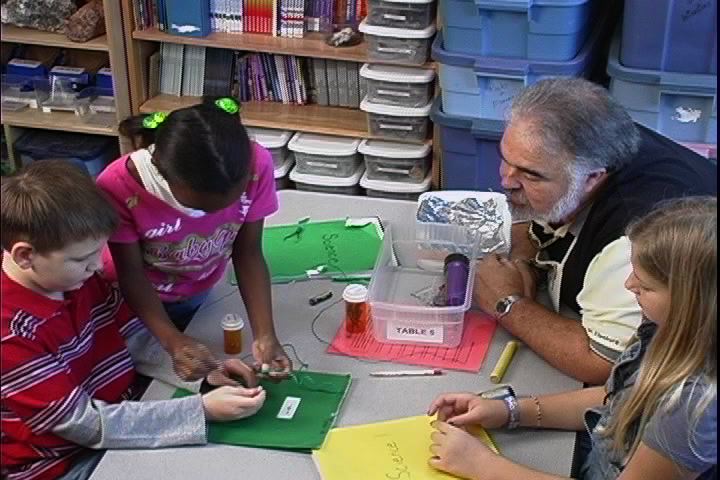I get asked this a lot. Part of the answer is grant writing. For the last five years I've been able to bring in around $2500 by submitting local, district and national grants. An example is the Air Force Association Educator's grant that we recently were awarded. The amount is $250 which we will use to purchase model rocket kits, rocket engines and airplane supplies. This is the third year we have received this grant. I spend a couple of hours a week in the evening surfing for grants. Never assume you can't get money - it's there.
Our school doesn't provide supplies or materials for my program. I get some money for my annual science night and to register our Science Olympiad competitions. All of the materials you see in the pictures are my personal materials. Unfortunately I do spend a great deal of my own money, but like so many of you, it is the price you pay to teach the way you feel is the most effective. Look for more funding ideas in the future.
A quick Science Lab update
After a very cold and windy winter we are finally catching up. Though Florida wasn't covered in snow, we have suffered this winter. Our school garden was almost completely destroyed - too many hard freezes! Our fifth grade garden club is quickly cleaning, weeding and replanting. Pictures to follow.
Our two aeronautic clubs have now built four remote controlled airplanes. Our planes are electric powered and use Lipo batteries similar to those used in cell phones. We practice on our flight simulator regularly and are now in the process of issuing a "Camelot Pilot License" to students who have proven successful with the simulator, can identify the parts of a plane and transmitter, and have a good understanding of flight. These students will now begin to fly our remote controlled airplanes on a "buddy box" (think drivers education) under the supervision of our parent volunteer. Look for pictures and videos which will be following shortly.
Our two aeronautic clubs have now built four remote controlled airplanes. Our planes are electric powered and use Lipo batteries similar to those used in cell phones. We practice on our flight simulator regularly and are now in the process of issuing a "Camelot Pilot License" to students who have proven successful with the simulator, can identify the parts of a plane and transmitter, and have a good understanding of flight. These students will now begin to fly our remote controlled airplanes on a "buddy box" (think drivers education) under the supervision of our parent volunteer. Look for pictures and videos which will be following shortly.
Subscribe to:
Comments (Atom)
























